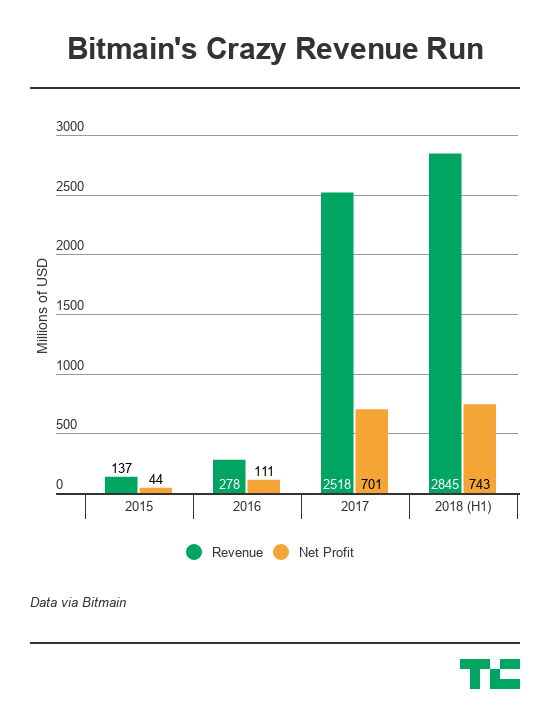Should you let AI help you pick your roommates? Barcelona-based urban room rental startup Badi thinks so, and it’s just closed a $30M Series B funding round less than a year after a $10M Series A — suggesting algorithm-aided matchmaking is resonating with its target Millennial(ish) ‘Generation Rent’ demographic, as they hunt for their next flatmate.
The 2015 founded startup has now raised circa $45M in total, while its platform has passed 12M rental requests. Badi also tells us it passed one million registered users last November, up from around 700,000 in February 2018.
It currently offers a service in key cities in four European markets: Spain, France, Italy and the U.K.
The business was set up to respond to the rising trend of urban living (and indeed tourism) that’s been driving rents and squeezing more people into shared houses to try to make city living affordable.
Badi CEO and founder Carlos Pierre points to estimates that by 2050 the total population living in cities will increase from 54% to 66%. “There will likely be a shortage of homes for people looking to live in cities and as a result, this will lead to an increase in smaller living units or rooms. This is where Badi comes in,” he suggests in a statement.
On the AI front, Badi applies machine learning technology to help with the flatmate matching process — learning from users of its platform, as they match and agree to become flatmates, and then feeding ‘compatibility insights’ back in to keep improving its recommendations.
The Series B is led by U.S.-based consumer tech VC firm Goodwater Capital, making its first investment in a Spanish startup. Also investing Target Global and existing VCs Spark Capital and Mangrove Capital.
Badi says the funding will be put towards consolidating its services in Barcelona, Madrid, London, Paris and Rome, and also to open new offices in London.
It says it’s spying a big opportunity there (despite Brexit) on account of the UK capital being one of the most most expensive for renters in the region.
Two other cities it operates in, Barcelona and Madrid, are similarly in demand with renters (and tourists), with Badi noting the rental market in Spain has grown by 130% in the last 10 years and represents 23% of the entire real estate industry.
While Paris and Rome are also major tourist destinations, and short term tourist rentals have been widely linked to increased rents for locals.
Badi’s business is positioned to benefit from the tourist-inflated rent trend as it stands, though cities like Barcelona are also looking at what they can do, policy wise, to curb rising rents and ensure there is affordable and adequate living space for local families, such as via social housing quotas on developers and even buying vacant buildings themselves to convert to housing stock.
But despite increased political attention on the problem of a lack of affordable housing in cities in desirable urban hotspots it’s highly unlikely that housing pressures are going to let up any time soon.
Badi says the Series B will also be used to expand the size of its team, up to 100%, and also to develop additional extra services intended to make life easier for landlords and tenants.
“In the first quarter of 2019, we will work on improving our product to offer possibilities for professionals and private owners to make their experience on Badi far more efficient. Secondly we are redesigning and launching a new booking system around April 2019 to enhance the booking experience to make it more streamlined and user-centric,” it tells us.
Commenting on the funding in a statement, Chi-Hua Chien, co-founder of Goodwater Capita, added: “We are extremely excited to partner with Badi in their mission to solve the looming urban housing crisis — there simply aren’t enough homes in cities and housing has become too expensive. Badi provides a unique end-to-end rental platform that builds trust and convenience directly into the customer experience, which has enabled them to unlock thousands of new rooms in cities around the world.”

 Launched in 2014 by CEO Alice Chang and owned by CyberLink, a digital media software developer, Perfect Corp says its apps have now been downloaded 700 million times and claims a total of 60 million monthly active users (in China, it also has a mini-program for WeChat). The company says its tools help retailers increase basket sizes and conversions, reduce the number of products returned, and give brands aggregated data about how consumers interact with makeup colors, like what shades they are most likely to try-on and how they combine different products.
Launched in 2014 by CEO Alice Chang and owned by CyberLink, a digital media software developer, Perfect Corp says its apps have now been downloaded 700 million times and claims a total of 60 million monthly active users (in China, it also has a mini-program for WeChat). The company says its tools help retailers increase basket sizes and conversions, reduce the number of products returned, and give brands aggregated data about how consumers interact with makeup colors, like what shades they are most likely to try-on and how they combine different products.





